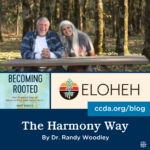
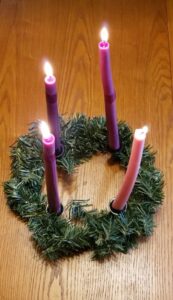
Welcome to #ccdaAdvent.
In the midst of darkness, oppression, and marginalization, Christ entered the scene of the first Advent and paved the way for our communal wellbeing. This Advent season, we invite you to consider the implications of Christ’s coming for our communities. What lessons may we draw from their context?
We are excited to partner with PAX and share with you their devotional, “Waiting with Imagination: An Advent Resource for Contemplative Activists.” Each devotional will include a reflection, breath prayer, art, and worship. We pray that the reflections and prayers within these Advent devotionals bring renewed inspiration, anticipation, and hope in the Kingdom of God that has come and is to come. Amen.

Devotional
“My soul magnifies the Lord,
and my spirit rejoices in God my Savior,
for he has looked with favor on the lowly state of his servant.
Surely from now on all generations will call me blessed,
for the Mighty One has done great things for me,
and holy is his name;
indeed, his mercy is for those who fear him
from generation to generation.
He has shown strength with his arm;
he has scattered the proud in the imagination of their hearts.
He has brought down the powerful from their thrones
and lifted up the lowly;
he has filled the hungry with good things
and sent the rich away empty.
He has come to the aid of his child Israel,
in remembrance of his mercy,
according to the promise he made to our ancestors,
to Abraham and to his descendants forever.”
Luke 1:46b-55
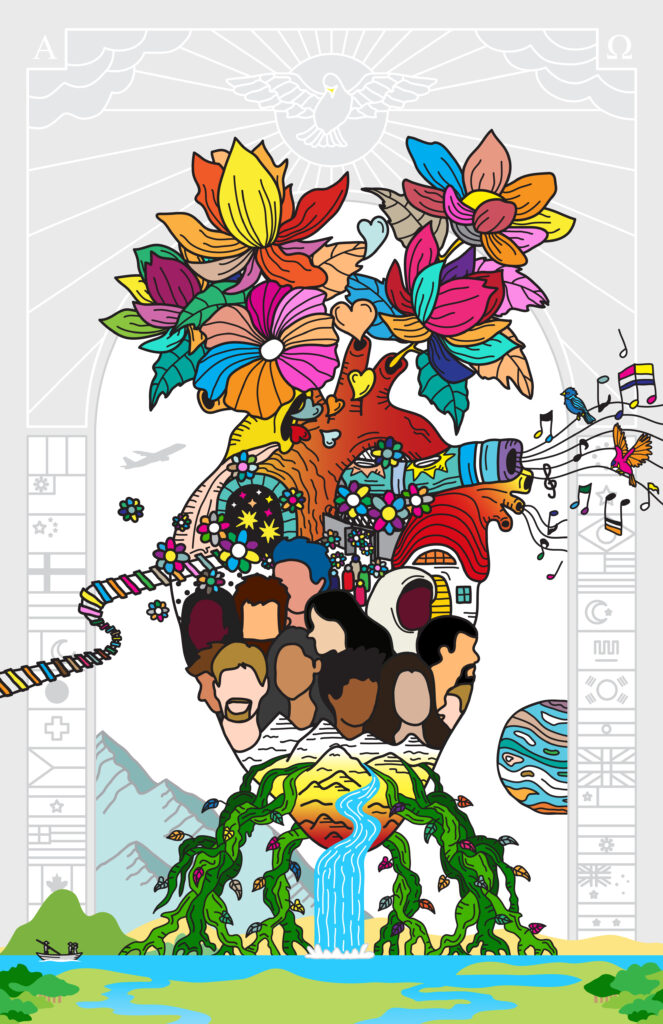
Mary’s song, often called the Magnificat, is her response to the news that the child in her womb is the Messiah of God. This jubilant song sums up the deepest, centuries-old longings of the people of God, who had been waiting for God to bring an end to exile and oppression.
This song is no ordinary song. It is a hymn of revolution. Mary is celebrating the arrival of the Messiah and the ushering in of God’s final Jubilee–the ultimate reversal of all things.
Under the Law of Moses, every seventh year was considered a Sabbath year. The land would rest, debts would be forgiven, and all slaves would be set free. Every seven-times-seven years (or every fiftieth year) was a Jubilee year, during which all the aforementioned things took place, but, in addition, all land was returned to its original owner.
This practice prevented the establishment of a permanent underclass of people in Israel. It was God’s way of putting a provision against systemic injustice within the Law. It also foreshadowed an ultimate Jubilee, in which God would usher in a full and final restoration of all things. Mary, in her song, is proclaiming that this has finally arrived in Jesus.
When Jesus says he has come “to proclaim the year of the Lord’s favor” in Luke 4:19, he is speaking of the year of Jubilee. The Jubilee of Jesus includes the forgiveness of sins and release from the bondage to sin, but it also sets in motion the liberation of society from the sins of oppression and injustice.
The Magnificat announces that the world is changing. Those who hear it can either get on board with God’s peaceful revolution of self-giving love that is good news for the poor, or they can seek to put the revolution to rest, like King Herod who ordered the slaughter of innocents in hopes of destroying the Messiah.
What does Mary’s song sound like in your ears? And how will you respond?

Body Prayer
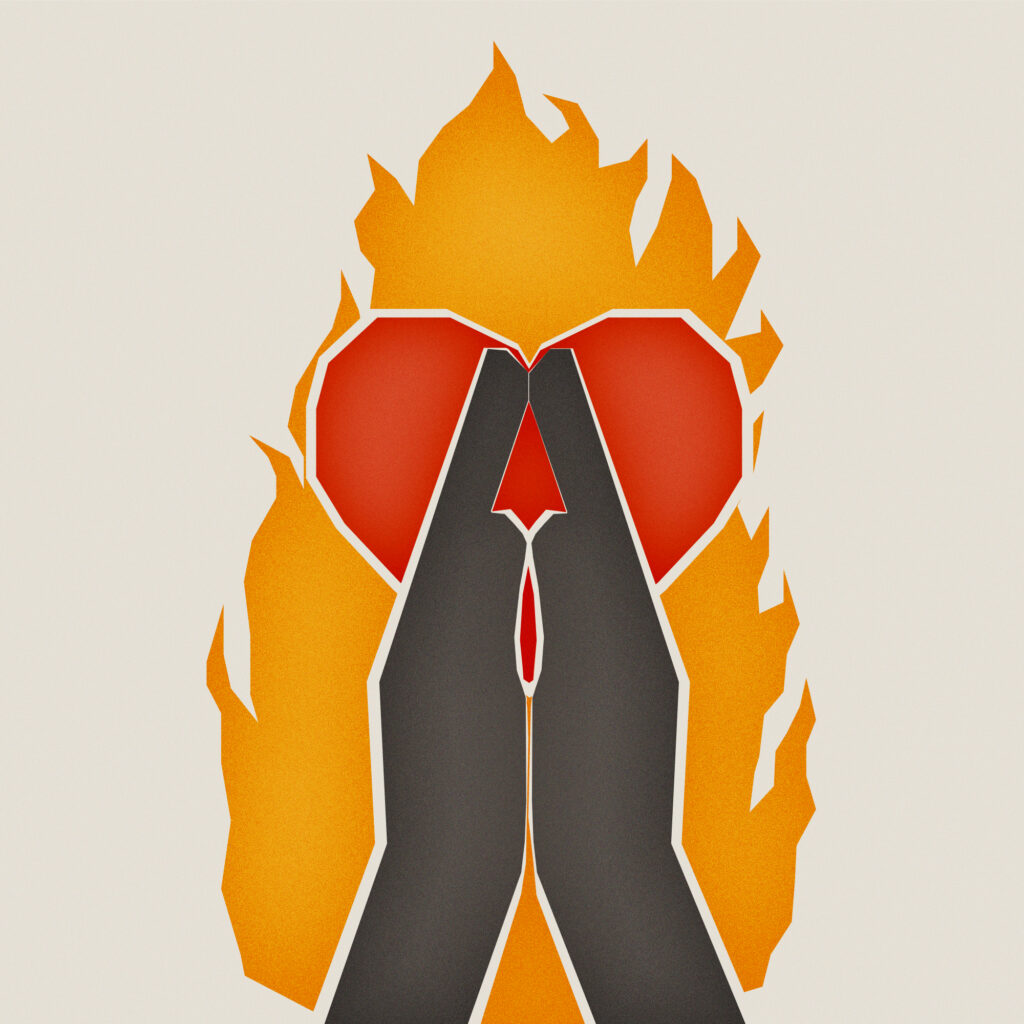
Advent and Christmas are times when we celebrate Jesus, Emmanuel, God with us. Take a moment and think about that. God took on a body and walked among us. God embraced the vulnerability of a human body and mind so that he could physically embrace us.
Bodies matter. Bodies of marginalized people matter. Bodies that are changing because of illness or age matter. Bodies allow us the pleasure of touch and taste, and the privilege of taking up space. Bodies matter so much to God that he took on one of his own.
This week we’re going to practice body prayer. Body prayer is just as it sounds— using our bodies to pray through movements that are usually attached to a saying, scripture, or mantra. The Body Prayer below is attributed to mystic Julian of Norwich. At the age of thirty, Julian of Norwich became gravely ill. She experienced intense pain. During her illness, she received visions of God’s love and presence, which she later recorded in what would become her most profound work: Revelations of Divine Love.
Take some time this week to practice this body prayer.* As you do so, be aware of your breaths and how your body feels. Remember that bodies matter.
AWAIT (hands at waist, cupped up to receive): Await God’s presence, not as you expect, hope, or imagine, but just as it is in this moment.
ALLOW (reach up, hands open): Allow a sense of God’s presence (or not) to come and be what it is, without meeting your expectations.
ACCEPT (hands at heart, cupped towards body): Accept as a gift whatever comes or does not come. Accept that you are not in charge. Accept the infinity of God’s presence, whether or not you are aware.
ATTEND (hands outstretched, ready to be responsive): In this stance of openness, attend to the action(s) that God invites you to take.
*Adapted from Richard Rohr’s version of Julian’s body prayer. See https://dioceseofnewark.org/content/await-allow-accept-attend-advent-body-prayer.

By Timothy Cho
Eternal Three-In-One,
Within your divine dance is the geommu* of justice –
Father to the orphan,
Servant to the lowly,
Comforter to the widow –
The rhythmic janngu** resounding shalom
Into this broken world.
Bring me into your dance,
To bring shalom to my neighbor’s pain.
Bring me into your dance,
To bring shalom to my neighbor’s fear.
Bring me into your dance,
To bring shalom to my neighbor’s need.
Bring me into your dance,
To bring shalom to my neighbor’s tears.
May the shalom I receive in Christ
Be extended through me for the sake of the world.
Amen.
*Geommu (검무) is a traditional Korean group sword dance incorporating a dynamic and graceful performance with costumes, weapons, and music.
**Janngu (장구) is a traditional Korean drum with an hourglass body with two drum heads that have different pitches. The instrument is used in geommu.
Originally published in Tethered: 21 Prayers of Pax by and for Gen Zers of Color, ©2020 by PAX. The full resource is available for download at madeforpax.org/marketplace.

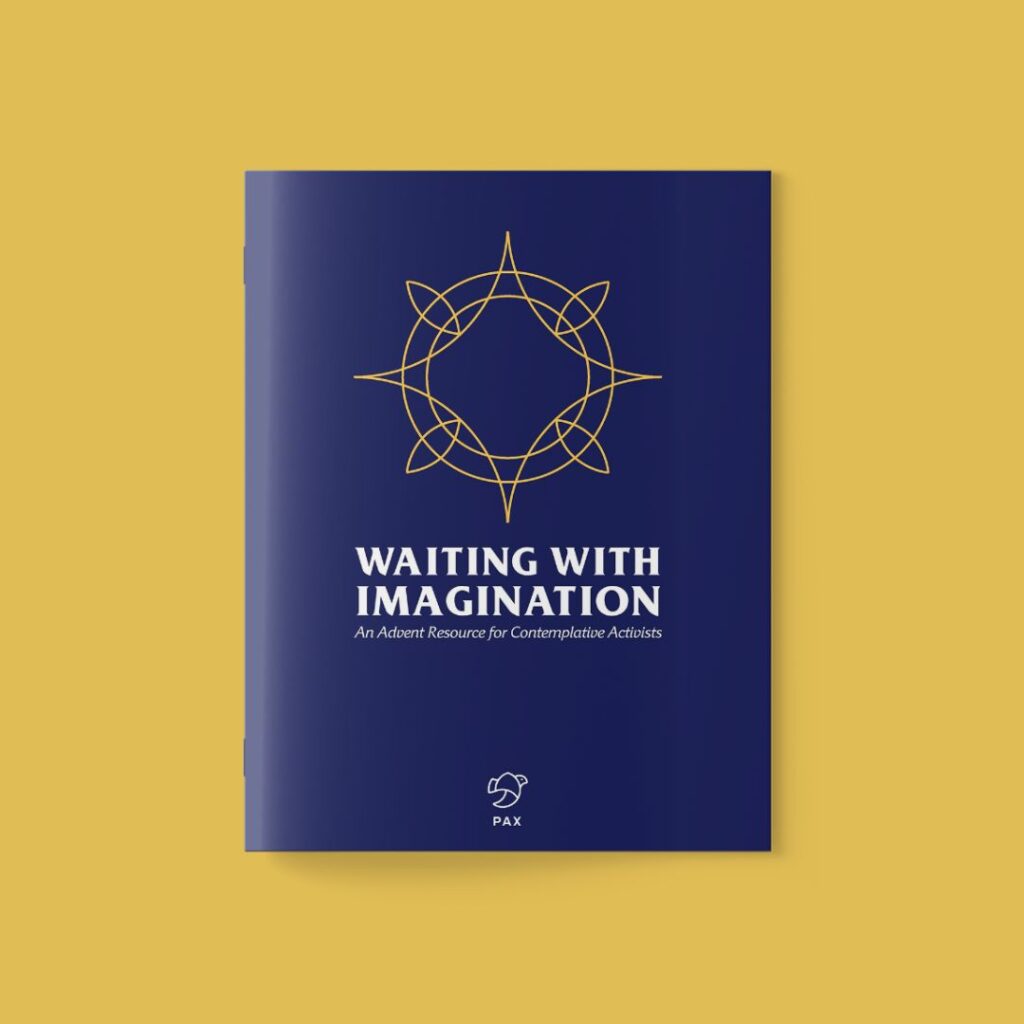
Waiting with Imagination
by PAX
PAX is a faith-based organization that inspires the church to embody the peace and justice of Jesus through contemplative formation.
Learn more at www.madeforpax.org or follow them on social media @madeforpax.



